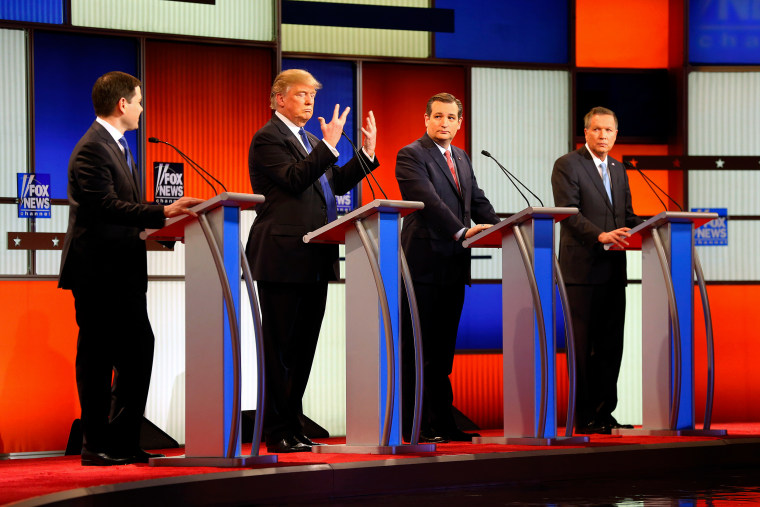The Supreme Court on Monday agreed to take up a case involving Donald Trump’s … size.
Well, sort of.
The case involves an attempt to trademark “Trump too small” for use on T-shirts. The U.S. Patent and Trademark Office rejected the application, a federal appeals court reversed on First Amendment free speech grounds, and the Biden administration appealed to the justices — not to defend Trump, but to defend the government’s right to reject trademarks, including those that criticize public officials and figures without their consent.
So, it's an important issue against an absurd backdrop.
It all stemmed from the 2016 presidential race, when Sen. Marco Rubio, R-Fla., mocked Trump’s hand size. That led attorney Steve Elster to try to trademark “Trump too small,” a phrase NBC News’ Lawrence Hurley artfully explained as “a double-entendre meant to insinuate a correspondingly small penis.” Elster wanted to include the phrase “on the front of T-shirts, with the phrase ‘Trump’s package is too small,’ on the back, followed by a list of policy areas that he says fit that characterization,” Hurley reported.

Federal law rejects trademarks that identify “a particular living individual except by his written consent.” Appealing to the justices, the government argues that the law “is not a restriction on speech” but rather “a viewpoint-neutral condition on a government benefit.”
The case, Vidal v. Elster, will likely be heard next Supreme Court term, which begins in October, with a decision expected by late June 2024. It’s unlikely to be the most pressing legal matter on Trump’s mind as he tries to retake the White House and fend off at least one criminal indictment (which is not entirely unrelated to Trump's genitalia, either).
But whatever the Supreme Court decides, it could provide the former president — and whatever other descriptors apply to him by then — with an uncomfortable reminder on top of his already busy docket.
Subscribe to the Deadline: Legal Blog newsletter for weekly updates on the top legal stories, including news from the Supreme Court, the Donald Trump investigations and more.
